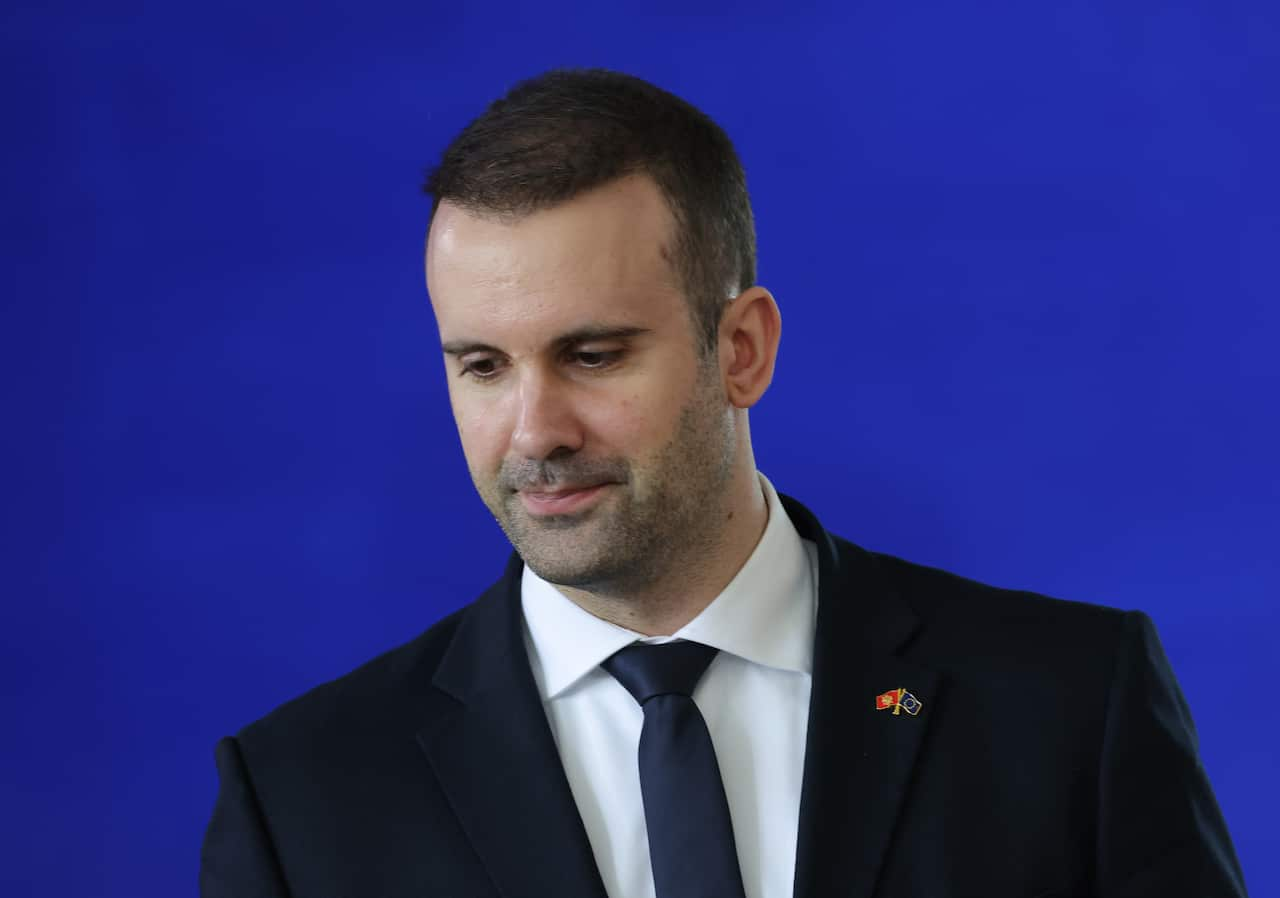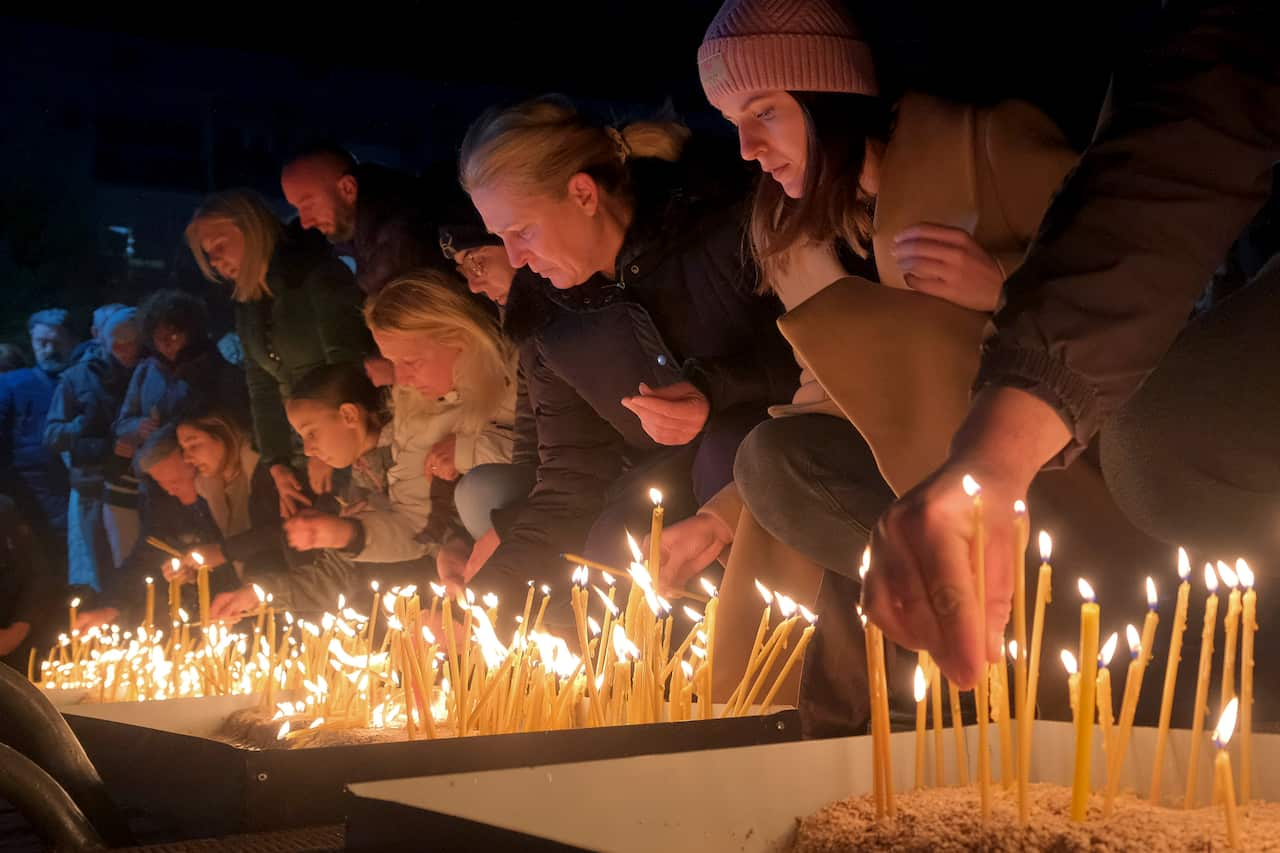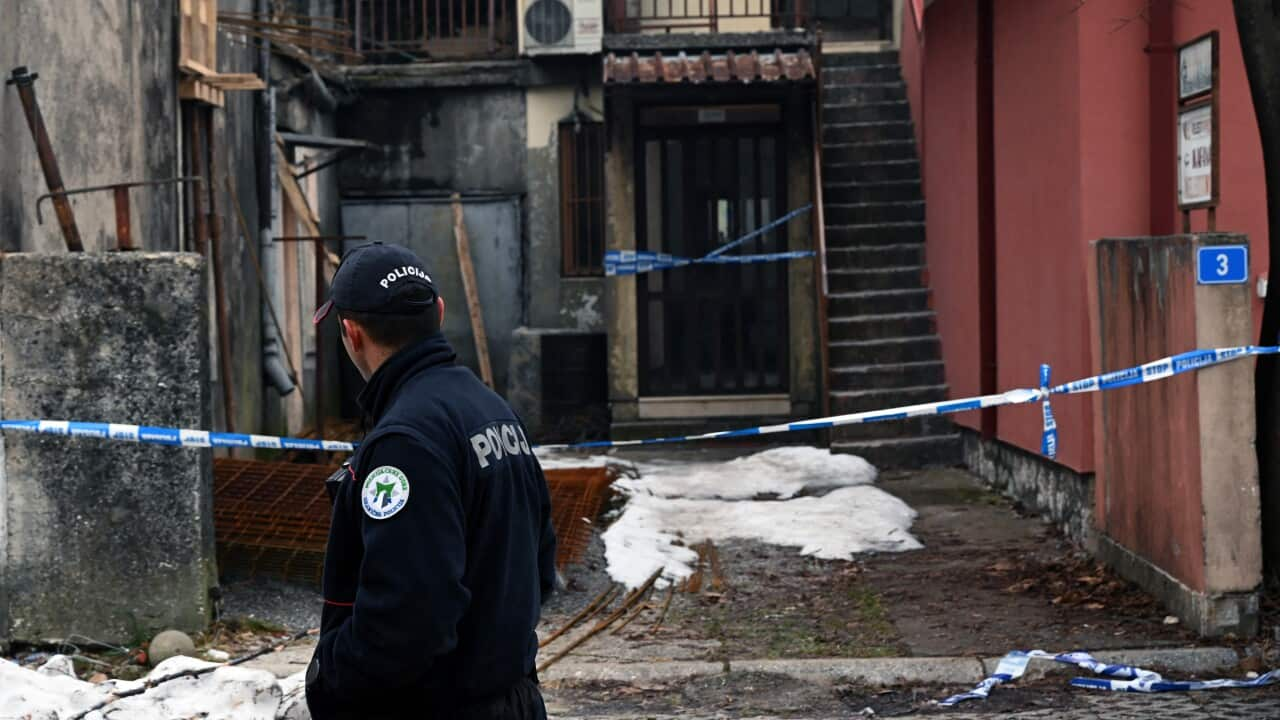Montenegro authorities have announced measures to curb illegal weapons following a gunman’s rampage that killed 12 people this week, the second mass shooting in the small Balkan country in less than three years.
On Wednesday, a 45-year-old man opened fire at a restaurant in the town of Cetinje, starting a killing spree that prompted the government to announce three days of national mourning.
“The availability of weapons is excessive and horrifying, and it cannot be justified by tradition,” Prime Minister Milojko Spajic said at a press conference after a meeting of the country’s National Security Council.
The attacker in Cetinje, who died from a self-inflicted gunshot wound, had a history of possessing illegal weapons, some of which were seized from him in 2022. But police said the gun used in his attack was owned illegally.
Spajic said new searches would be carried out for illegal weapons, giving people in possession of them a two-month deadline to turn them in without facing legal consequences.
“After that, a new law will come into effect, under which possession, especially carrying illegal weapons, will be punished severely,” Spajic said, warning that “there will be no mercy”.
The government will also review all permits issued for legally owned firearms.
“We will adopt a new law, and those with permits will have until January 2026 to undergo new, stricter security and health screenings,” Spajic said.
Montenegro Prime Minister Milojko Spajic has vowed his government will crack down on illegal firearms. Source: Getty / Sean Gallup
A history of gun culture
Stricter weapons laws could face opposition in Montenegro, which has a deeply rooted gun culture.
According to the Small Arms Survey, a Swiss research program, there are approximately 245,000 firearms in circulation in Montenegro, a nation of just over 620,000 people.
Despite strict laws, the Western Balkans composed of Serbia, Montenegro, Bosnia, Albania, Kosovo and North Macedonia, remain awash with weapons.
Most are from the wars in the 1990s, but some date even to World War One.
“What can I say about this case? Sadness, sadness, silence… This is not the first case. All of this is a consequence of uncontrolled arms-carrying,” pensioner Boro Bozovic, 76, told Agence France-Presse during a vigil for the victims.
People lighting candles for the victims of the Cetinje shootings during a vigil in Podogrica, Montenegro. Source: AAP, AP / Risto Bozovic
The last mass shooting in the town of Cetinje, 40km west of the capital Podgorica, occurred in 2022.
A gunman killed 10 people during that rampage, including two children, before he was shot dead.
Protesters demand accountability
Spajic’s announcements came after dozens of people gathered outside the government building in Podgorica to demand accountability for the killings.
The protesters left 12 flowers on the protective fence outside the building to commemorate the 12 victims.
Three other victims wounded in the Bajice attack remain in hospital, one in critical condition, Montenegro’s Clinical Center said on Friday.
“The tragedy in Cetinje is a heavy burden for our small country,” Spajic said.


